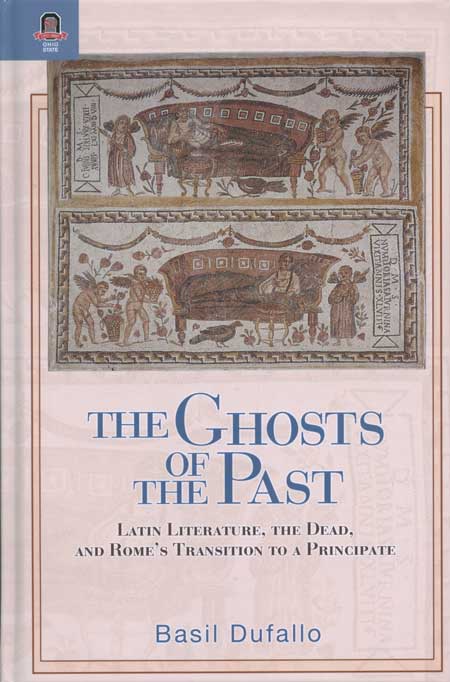 The Ghosts of the Past
The Ghosts of the Past
Latin Literature, the Dead, and Rome’s Transition to a Principate
Basil Dufallo
“Dufallo shows how the Roman dead are used as guarantors of authority when all the longstanding cultural institutions of Rome were in violent upheaval. A republic of several hundred years’ standing was becoming a de facto monarchy, and negotiating the transition meant claim and counterclaim to authority on the basis of ‘the way our ancestors did things’ (mos maiorum). This book will appeal widely to humanists interested in how cultures negotiate profound historical change while preserving a sense of identity and continuity.” —Micaela Janan, Duke University
The ancient Romans quite literally surrounded themselves with the dead: masks of the dead were in the atria of their houses, funerals paraded through their main marketplace, and tombs lined the roads leading into and out of the city. In Roman literature as well, the dead occupy a prominent place, indicating a close and complex relationship between literature and society. The evocation of the dead in the Latin authors of the first century BCE both responds and contributes to changing socio-political conditions during the transition from the Republic to the Empire.
To understand the literary life of the Roman dead, The Ghosts of the Past develops a new perspective on Latin literature’s interaction with Roman culture. Drawing on the insights of sociology, anthropology, and performance theory, Basil Dufallo argues that authors of the late Republic and early Principate engage strategically with Roman behaviors centered on the dead and their world in order to address urgent political and social concerns. Republican literature exploits this context for the ends of political competition among the clan-based Roman elite, while early imperial literature seeks to restage the republican practices for a reformed Augustan society.
Calling into question boundaries of genre and literary form, Dufallo’s study will revise current understandings of Latin literature as a cultural and performance practice. Works as diverse as Cicero’s speeches, Propertian elegy, Horace’s epodes and satires, and Vergil’s Aeneid appear in a new light as performed texts interacting with other kinds of cultural performance from which they might otherwise seem isolated.
Basil Dufallo is assistant professor of classics and comparative literature at the University of Michigan.
|
Jan 2007 Literary Criticism/Ancient & Classical 175 pp. 6x9 |
|
| $59.95 cloth 978-0-8142-1044-4 | Add cloth to shopping cart |
| $14.95 CD 978-0-8142-9124-5 | Add CD to shopping cart |


